Violence in Afghanistan alarms Swiss aid workers
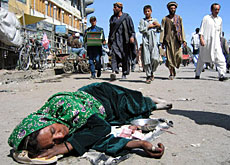
The Swiss parliament has agreed to send Swiss soldiers to Afghanistan to work with international peacekeeping forces.
The decision on Tuesday came as Swiss non-governmental organisations sounded alarm bells over spiralling violence in the country.
Representatives of Swiss NGOs working out of the Afghhan capital, Kabul, say that although international peacekeeping forces have managed to make the city relatively safe, dangers abound in other regions.
“Overall, security has declined in Afghanistan on a major scale,” Suzanne Schmeidl of the Swisspeace foundation, told swissinfo. “The north and the south in particular have become insecure.”
NGOs have been the targets of a series of attacks, blamed on local warlords and remaining members of the former Taliban regime.
In March, an aid worker with the International Red Cross was shot dead by gunmen near the southern city of Kandahar.
Violence against the peacekeeping forces in the country has also escalated. On Saturday, four peacekeepers were killed and 31 people injured in a bomb attack in Kabul.
There have also been grenade attacks against the offices of the United Nations and other organisations, while de-mining crews have been ambushed in some areas.
Warlords
Major Ralph Ganter, one of the two Swiss members of the United Nations International Security Assistance Force (ISAF), told swissinfo that local warlords were wreaking havoc in some parts of Afghanistan.
“The problem lies in the provinces where there are still many warlords and fighters who are in power, doing their own thing,” he said.
Ganter, one of two Swiss soldiers with ISAF, has been working in Afghanistan since March. He said the security problem is compounded by lack of equipment and training among the Afghan military forces and patrol units.
Staying put
Despite the threat NGOs are facing, many organisations are staying put for the time being.
“We are definitely not pulling out,” said Erik Volkmar, director of Swiss-based Medair. “We just have to adapt and live with the situation.”
But Swiss organisations say that although they are not planning to leave Afghanistan, the current insecurity has limited the scope of their work.
“The security situation does limit my potential to travel,” Schmeidl explains. “There are some areas I can no longer go to, but where I could have gone a few months ago.”
Aid organisations say that the insecurity is partly due to the instability of the country’s institutions. Schmeidl admits the Afghans are facing a vicious circle.
“People are extremely frustrated because the government isn’t delivering, and that frustration gives the warlords in the provinces the edge,” she added. “This in turn creates more insecurity in some areas.”
Abandoned
NGOs do not hesitate to lay part of the blame for the current insecurity on the Western powers that helped overthrow the former Taliban regime in 2001.
They say that Afghanis feel that they have been abandoned and wonder if the West will keep its promises to help reconstruct Afghanistan.
“Many families of the victims of American bombings have not received any compensation,” said Rainer Droste of Terre des Hommes. “Without this money, people are turning back to supporting the Taliban.”
Some organisations believe the attacks against NGOs are occurring because of rising anti-Western sentiment in the Muslim world, particularly after the US-led invasion of Iraq.
They also fear that development programmes by international peacekeepers stationed in Afghanistan are causing some Afghan civilians to confuse the forces with NGOs stationed there.
swissinfo, Scott Capper
The Swiss House of Representatives this week backed proposals to send two Swiss peacekeepers to Afghanistan, to work with the International Security Assistance Force.
Swiss NGOs working in Afghanistan say that violence is on the increase, but that they are not considering pulling out at this time.
The current insecurity is forcing the organisations to limit their activities and is slowing down some projects.

In compliance with the JTI standards
More: SWI swissinfo.ch certified by the Journalism Trust Initiative
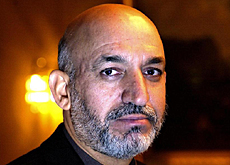
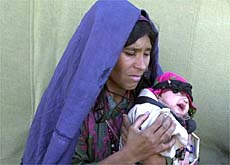
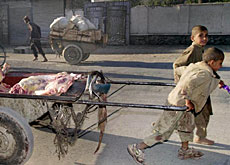
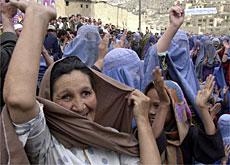
You can find an overview of ongoing debates with our journalists here. Please join us!
If you want to start a conversation about a topic raised in this article or want to report factual errors, email us at english@swissinfo.ch.